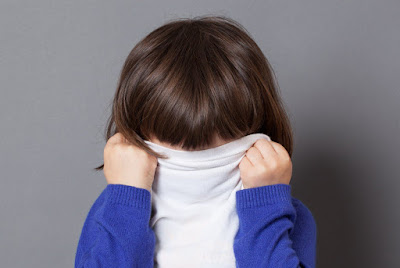As my son reaches three years old, his “bad” behavior has started to show. He has started yelling and getting angry easily and he loves antagonistic movie characters. So, I evaluated our behavior as parents and his surroundings, and came up with a few solutions.
I also shared this issue on my Instagram account and received numerous responses from mothers with the same problem. I started reading articles and books, and also talked to a child psychologist and friends. It turns out that this is a totally normal phase, and most kids will go through it. As a matter of fact, this development is actually good for his well-being as it will shape him into a more confident character. It is our job to guide him.
Since lots of parents are facing this problem, I would like to share some tips that I know are kind of a cliché, but actually worked for my 3 year old:
Emphasize positive words
As we become emotional when we see our child acting up, we start saying things that we do not actually mean. Take a deep breath and choose your words wisely.
So for instance, if your child makes a scene in a public place, instead of saying “Stop yelling!” it is better to say “Can you please talk quietly?”. I often forget to do this too; it takes practice and persistence. However, on days I remember to do this, he tends to behave better and listen more.
Consistency
Because he is 3 years old, I am teaching him a lot of new stuff that frustrates him such as putting on his own shoes and clothes. He yells every time I tell him to do it. “I can’t do it myself, I want you to do it for me!” over and over again.
At times when I am in a hurry, I’ll do it for him. This sends out mixed signals. He thinks, “If I yell a little, mum will do it for me, so why should I do it myself?”. Therefore, my solution is to get ready earlier, allowing around 15 minutes of spare time. This way we are not in a hurry and don’t get frustrated when he starts yelling.
After a few weeks of being consistent, he is willing to put on his shoes and clothes himself without being told.
Yell less, love more
Easier said than done, I know. But when you explain to them the situation and your expectations, they will be more likely to listen.
We often treat children like children, whereas we should just explain to them as if they understand, because they do. Start talking when they stop yelling or crying. Do not try to talk over his tantrums, as that would be useless.
Let him finish crying, then ask him why is he upset, tell him why you are upset, and what you expect of him. Surprisingly, it works. I know it will be hard at first, especially in public places, but once you get the hang of it, it will make your life so much easier.
Hugs
Still in relation to the above advice: Hugging is the best solution. Research show that kids who receive more positive contact and affection during their childhood will be more likely to grow up kinder and smarter.
I don’t know whether it’s true or not, but choosing love over hatred makes a lot of sense to me.
Last but not least: Positive example
In theory, we know the drill. But in reality, we often forget that we yell and we complain when we get frustrated, and we give up easily when solving problems ( by we, I mean me ).
We do all those things probably not to our child, but in front of him. Therefore, once you become a parent, don’t forget that someone is watching your every movement.
The terrible threes and how to cope with it
4/
5
Oleh
Unknown
